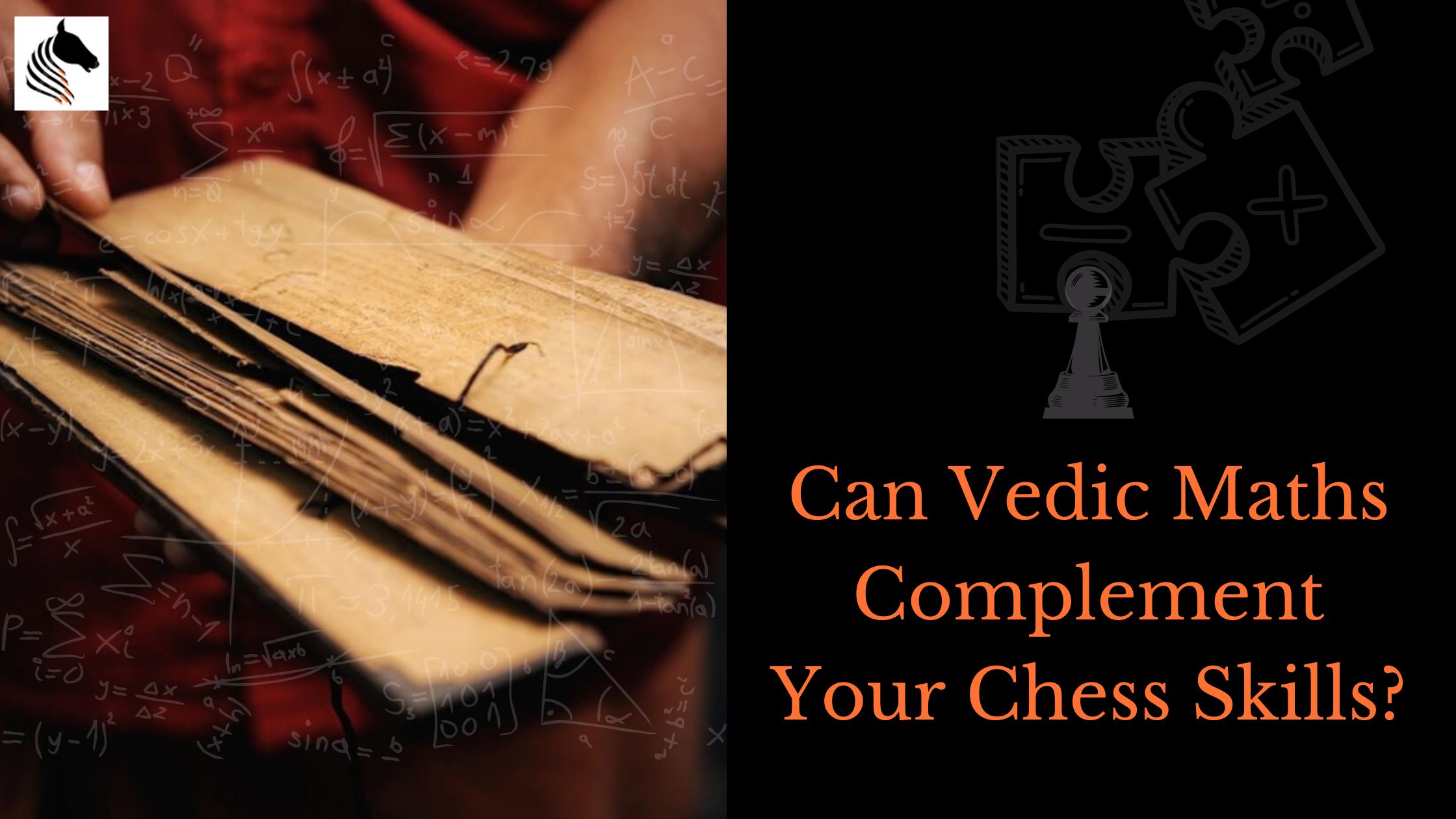12 Apr Vedic Maths – The Best Complement For Your Chess Skills

Vedic math is a system of mathematical techniques developed in ancient India that involves mental calculation and simplified methods for solving complex problems. While it may not have a direct connection to chess, the skills developed through practicing Vedic math can be potentially applied to chess. It is based on sixteen sutras (aphorisms) that can be used to perform complex calculations quickly and efficiently.
Vedic math is a system of mathematical techniques that originated in ancient India and is based on ancient Hindu scriptures called the Vedas. While it may not seem directly related to chess, there are some ways in which learning Vedic math can benefit a chess player.
While it is not directly related to the game of chess, there are some ways in which it may help improve one’s chess game.
Yoga and meditation originated in ancient India and were designed to promote physical, mental, and spiritual well-being.
1. Visualization and Pattern Recognition
Vedic math emphasizes the use of visualization and pattern recognition to solve problems quickly and efficiently. In chess, players must also be able to visualize the board and calculate moves mentally in order to make strategic decisions. Practicing Vedic math helps improve a player’s ability to analyze chess positions and make more accurate calculations.
Chess players often need to visualize multiple moves ahead in their heads, and being able to perform these calculations quickly and accurately can be a valuable skill. Vedic math can help develop mental agility and speed, which can be applied to chess and other areas of life.
2. Calculation Skills
Vedic math can improve a player’s calculation skills, which is essential in chess. The system teaches mental math techniques to help players make quick calculations on the board, allowing them to evaluate different lines of play and quickly make accurate decisions.
Vedic math involves visualizing numbers and calculations in a particular way, which could help improve a player’s ability to visualize the chess board and potential moves.
3. Memory and Visualization Skills
Vedic math can improve a player’s memory and visualization skills. The system requires a player to memorize different patterns and techniques, which can help in recognizing different patterns on the chessboard. Additionally, Vedic math involves visualizing numbers and mathematical operations in unique ways, which can improve a player’s visualization abilities.
4. Cognitive Abilities
Further, learning Vedic math can improve a player’s overall cognitive abilities, including concentration, analytical skills, and problem-solving skills. All of these skills are essential in chess, and improving them can lead to better results on the board.
5. Focus
Finally, Vedic math can improve a player’s overall focus, which is of utmost importance in chess, as players must be able to remember previous moves, stay focused during long games, and analyze complex positions.
In summary, while there is no direct link between Vedic math and chess, the skills developed through practicing Vedic math can improve a player’s overall cognitive abilities, translating into enhanced chess performance. While there is no direct link between Vedic math and chess, there are some potential ways in which Vedic math could help improve a chess player’s mental calculation abilities and visualization skills, which could ultimately benefit their overall performance in the game.



